Government Operations

Vote by mail ballots: processing.
Authorizes processing of vote by mail ballots on the mailing date. Requires public processing and 8 p.m. release of results with 48-hour observer notice. Empowers observers to verify signatures, duplicate damaged ballots, and monitor handling. Operative only if the companion bill is enacted.
Vote by mail ballots: processing.

Authorizes processing of vote by mail ballots on the mailing date. Requires public processing and 8 p.m. release of results with 48-hour observer notice. Empowers observers to verify signatures, duplicate damaged ballots, and monitor handling. Operative only if the companion bill is enacted.

Open meetings: meeting and teleconference requirements.
Requires public access via two-way teleconferencing or video. Requires agenda translations into applicable languages and online posting by 2026. Sets disruption rules to recess for at least one hour when service fails. Broadens teleconferencing to health authorities, neighborhood councils, and student groups.
Open meetings: meeting and teleconference requirements.

Requires public access via two-way teleconferencing or video. Requires agenda translations into applicable languages and online posting by 2026. Sets disruption rules to recess for at least one hour when service fails. Broadens teleconferencing to health authorities, neighborhood councils, and student groups.

Campaign statements and registrations: filing online or electronically.
Mandates online or electronic filing for campaign reports and registrations. Eliminates fax filing and allows email submissions for certain reports. Renames core terms to campaign report and registration. Requires certification before use and makes online filing mandatory.
Campaign statements and registrations: filing online or electronically.

Mandates online or electronic filing for campaign reports and registrations. Eliminates fax filing and allows email submissions for certain reports. Renames core terms to campaign report and registration. Requires certification before use and makes online filing mandatory.

Elections: voter registration information: elected officials and candidates.
Establishes confidentiality for elected officials' and candidates' residence address, phone, and email. Requires counties to add local officials within five days and withhold confidential data from lists. Allows opt-out with five business days to remove confidentiality; includes a 60-day move transition. Restricts disclosures to journalistic or governmental purposes with a formal request process.
Elections: voter registration information: elected officials and candidates.

Establishes confidentiality for elected officials' and candidates' residence address, phone, and email. Requires counties to add local officials within five days and withhold confidential data from lists. Allows opt-out with five business days to remove confidentiality; includes a 60-day move transition. Restricts disclosures to journalistic or governmental purposes with a formal request process.

Political Reform Act of 1974: public campaign financing: California Fair Elections Act of 2026.
Establishes public funding for campaigns with eligibility criteria and expenditure limits. Prohibits using public funds to pay legal defense fees or repay personal campaign loans. Allows local governments to raise expenditure limits via a formula and FPPC won’t administer local funding programs. Requires voter approval at the 2026 general election and imposes penalties for foreign funding up to three times the amount contributed or expended.
Political Reform Act of 1974: public campaign financing: California Fair Elections Act of 2026.

Establishes public funding for campaigns with eligibility criteria and expenditure limits. Prohibits using public funds to pay legal defense fees or repay personal campaign loans. Allows local governments to raise expenditure limits via a formula and FPPC won’t administer local funding programs. Requires voter approval at the 2026 general election and imposes penalties for foreign funding up to three times the amount contributed or expended.
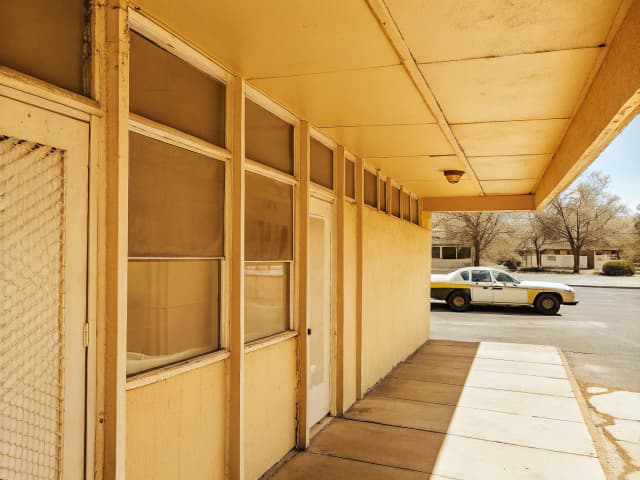
State real property: City of Imperial.
Authorizes DGS to sell, exchange, or lease CHP El Centro Area Office property to Imperial. Exempts the sale from CEQA review. Requires sale proceeds to cover issuer costs and defeasance. Directs proceeds to the Special Fund for Economic Uncertainties.
State real property: City of Imperial.

Authorizes DGS to sell, exchange, or lease CHP El Centro Area Office property to Imperial. Exempts the sale from CEQA review. Requires sale proceeds to cover issuer costs and defeasance. Directs proceeds to the Special Fund for Economic Uncertainties.
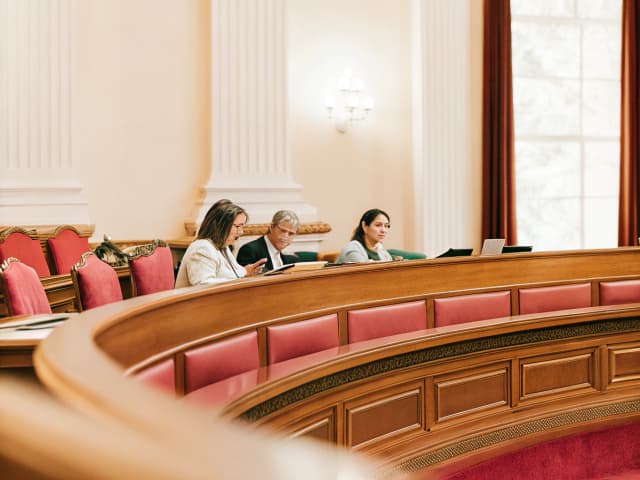
Behested payments: public appeal for payment.
Establishes a public-appeal exemption from behested payment reporting. Preserves the 30-day deadline and the $5,000 annual threshold for reporting. Precludes the exemption if payee has ties to officials or if knowledge exists within two years.
Behested payments: public appeal for payment.

Establishes a public-appeal exemption from behested payment reporting. Preserves the 30-day deadline and the $5,000 annual threshold for reporting. Precludes the exemption if payee has ties to officials or if knowledge exists within two years.

Political Reform Act of 1974: security expenses.
Eliminates the security expense cap until 2029, then caps at $10,000 per year. Expands exemptions to include more relatives, widening which payments are exempt. Creates a coordinated framework with another bill, with sequencing conditions. Maintains reporting, verification, and detailed recordkeeping for security expenses.
Political Reform Act of 1974: security expenses.

Eliminates the security expense cap until 2029, then caps at $10,000 per year. Expands exemptions to include more relatives, widening which payments are exempt. Creates a coordinated framework with another bill, with sequencing conditions. Maintains reporting, verification, and detailed recordkeeping for security expenses.

Elections.
• Requires notice to SOS and AG within 3 court days of federal election actions. • Requires draft settlements shared 14 court days before approval; records exempt from disclosure. • Adopts HAVA-minimum voting standards and requires escrow of approved source code within 10 days. • Enacts immediate effect and expands penalties for federal officers near polling places.
Elections.

• Requires notice to SOS and AG within 3 court days of federal election actions. • Requires draft settlements shared 14 court days before approval; records exempt from disclosure. • Adopts HAVA-minimum voting standards and requires escrow of approved source code within 10 days. • Enacts immediate effect and expands penalties for federal officers near polling places.

County of Merced Citizens Redistricting Commission.
Establishes Merced County Citizens Redistricting Commission to redraw supervisorial districts. Creates 11-member independent panel with district residency, diversity, and party balance. Uses up to 60 applicants; five chosen by random draw; the five then appoint six more by majority vote. Requires public hearings, Brown Act compliance, translations, data access, funding, and public records.
County of Merced Citizens Redistricting Commission.

Establishes Merced County Citizens Redistricting Commission to redraw supervisorial districts. Creates 11-member independent panel with district residency, diversity, and party balance. Uses up to 60 applicants; five chosen by random draw; the five then appoint six more by majority vote. Requires public hearings, Brown Act compliance, translations, data access, funding, and public records.

Sale of armories.
Authorizes transfer, exchange, or sale of seven armories with DGS and Adjutant General approval. Lists seven armories by location and acreage. Proceeds go to the Armory Fund for armory-related uses pending appropriation. Remains governed by the Armory Fund framework and requires future appropriation.
Sale of armories.

Authorizes transfer, exchange, or sale of seven armories with DGS and Adjutant General approval. Lists seven armories by location and acreage. Proceeds go to the Armory Fund for armory-related uses pending appropriation. Remains governed by the Armory Fund framework and requires future appropriation.

Outdoor advertising displays: permits: new alignments.
Requires acceptance of permit applications for ads on highway alignments when open within 1,000 ft. Prevents denial or delay of acceptance when the section is open within 1,000 ft. Provides no new penalties; enforcement relies on existing outdoor advertising rules. Requires fiscal committee review and notes no appropriation.
Outdoor advertising displays: permits: new alignments.

Requires acceptance of permit applications for ads on highway alignments when open within 1,000 ft. Prevents denial or delay of acceptance when the section is open within 1,000 ft. Provides no new penalties; enforcement relies on existing outdoor advertising rules. Requires fiscal committee review and notes no appropriation.
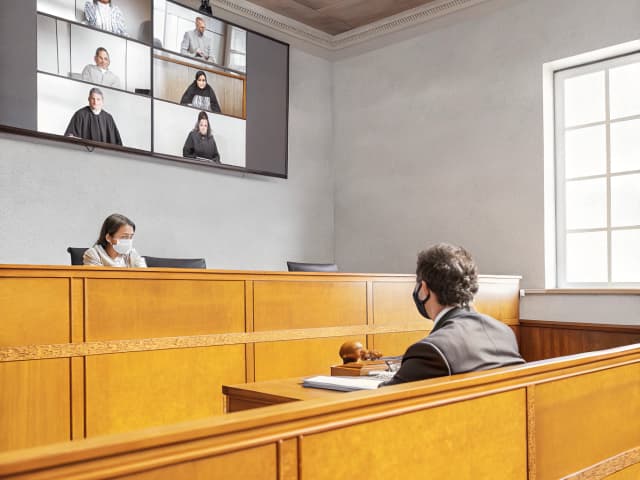
Courts: fees.
Establishes cost-based court fees with Judicial Council approval for non-explicit charges. Allows on-site copying with the requester’s own equipment at no charge, under safeguards. Requires Judicial Council reporting excess-cost fees by 2027-12-01, 2028-12-01, and 2029-12-01. Advances electronic records rules to allow digital signatures and require indexing and preservation.
Courts: fees.

Establishes cost-based court fees with Judicial Council approval for non-explicit charges. Allows on-site copying with the requester’s own equipment at no charge, under safeguards. Requires Judicial Council reporting excess-cost fees by 2027-12-01, 2028-12-01, and 2029-12-01. Advances electronic records rules to allow digital signatures and require indexing and preservation.

Local ordinances: administrative fines or penalties.
Allows clerks to enter judgments immediately from final admin orders. Establishes a parcel lien mechanism with pre-lien steps and 20-day notice. Implements cannabis-specific immediate fines with caps and joint liability. Creates a de novo appeal in superior court after admin exhaustion.
Local ordinances: administrative fines or penalties.

Allows clerks to enter judgments immediately from final admin orders. Establishes a parcel lien mechanism with pre-lien steps and 20-day notice. Implements cannabis-specific immediate fines with caps and joint liability. Creates a de novo appeal in superior court after admin exhaustion.

County recorders: notification.
Establishes a statewide county recorder notification program with 30-day mail notice after recording. Requires counties to adopt an authorizing resolution by January 1, 2027. Exempts government-grantee records and Los Angeles County from these requirements. Requires competitive bidding for processing and mailing and permits a fee after 120 days.
County recorders: notification.

Establishes a statewide county recorder notification program with 30-day mail notice after recording. Requires counties to adopt an authorizing resolution by January 1, 2027. Exempts government-grantee records and Los Angeles County from these requirements. Requires competitive bidding for processing and mailing and permits a fee after 120 days.

State agencies and departments: strategic plans: diversity, equity, and inclusion.
Requires equity-focused, data-driven strategic planning for executive agencies. First reporting deadline is April 1, 2026, with annual updates. Mandates consultation with unions, Legislature, clients, suppliers, and contractors. Adds data analysis, inclusive practices, racial equity, and tribal engagement updates if feasible.
State agencies and departments: strategic plans: diversity, equity, and inclusion.

Requires equity-focused, data-driven strategic planning for executive agencies. First reporting deadline is April 1, 2026, with annual updates. Mandates consultation with unions, Legislature, clients, suppliers, and contractors. Adds data analysis, inclusive practices, racial equity, and tribal engagement updates if feasible.

Political Reform Act of 1974: Citizens Redistricting Commission.
Establishes tighter CRC vacancy rules with 30-day fill, subpool, and auditor backstop. Expands ban on in-person contributions to include all government office buildings. Broadens FPPC filing scope and electronic filing for more officials, including public investment managers. Reaffirms amendment procedures for the Political Reform Act.
Political Reform Act of 1974: Citizens Redistricting Commission.

Establishes tighter CRC vacancy rules with 30-day fill, subpool, and auditor backstop. Expands ban on in-person contributions to include all government office buildings. Broadens FPPC filing scope and electronic filing for more officials, including public investment managers. Reaffirms amendment procedures for the Political Reform Act.

Tribal gaming: compact ratification.
Ratifies three tribal-state gaming compacts under IGRA. Exempts execution of the compacts and related intergovernmental agreements from CEQA. Declares the act an urgency statute with immediate effect. Requires a two-thirds vote and fiscal committee review; no appropriation.
Tribal gaming: compact ratification.

Ratifies three tribal-state gaming compacts under IGRA. Exempts execution of the compacts and related intergovernmental agreements from CEQA. Declares the act an urgency statute with immediate effect. Requires a two-thirds vote and fiscal committee review; no appropriation.
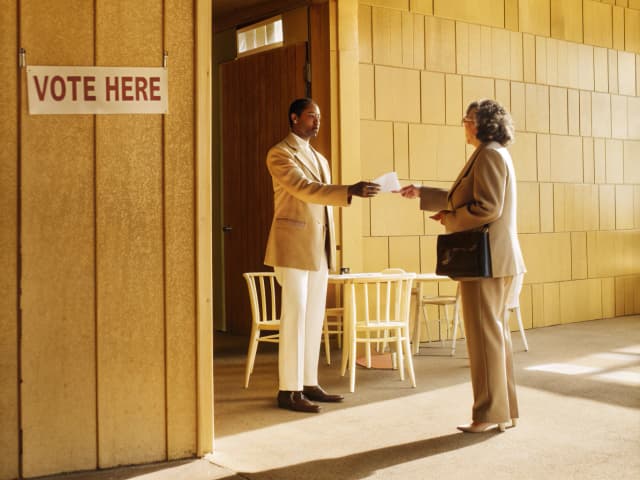
Early voting: satellite locations.
Expands in-person voting for mail ballots at offices or satellites 29 days before elections. Adds Saturday early voting for statewide elections in counties not all-mailed-ballot. Repeals the envelope-based mail-ballot requirement. Establishes campus Civic and Voter Empowerment Coordinator with outreach, UC participation optional.
Early voting: satellite locations.

Expands in-person voting for mail ballots at offices or satellites 29 days before elections. Adds Saturday early voting for statewide elections in counties not all-mailed-ballot. Repeals the envelope-based mail-ballot requirement. Establishes campus Civic and Voter Empowerment Coordinator with outreach, UC participation optional.

Election crimes: payment based on voting or voter registration.
Creates a crime prohibiting payments to influence voting or registration. Penalties include up to $10,000 fine and up to 3 years' imprisonment, including lottery prize incentives. Exempts transportation, government pay, and paid voting time. No state reimbursement; local agencies may bear costs; no effective date given.
Election crimes: payment based on voting or voter registration.

Creates a crime prohibiting payments to influence voting or registration. Penalties include up to $10,000 fine and up to 3 years' imprisonment, including lottery prize incentives. Exempts transportation, government pay, and paid voting time. No state reimbursement; local agencies may bear costs; no effective date given.

State Legislature: nondisclosure agreements.
Prohibits lawmakers from entering into NDAs about drafting, negotiating, or discussing proposed legislation. Declares any such NDAs entered after the act takes effect void and unenforceable. Allows NDAs that protect only trade secrets, financial information, or proprietary information. Declares no reimbursement is required for local agencies.
State Legislature: nondisclosure agreements.

Prohibits lawmakers from entering into NDAs about drafting, negotiating, or discussing proposed legislation. Declares any such NDAs entered after the act takes effect void and unenforceable. Allows NDAs that protect only trade secrets, financial information, or proprietary information. Declares no reimbursement is required for local agencies.

County recorders: fees.
Raises recording fees to fund the recorder’s office modernization and archives. Sets a cap so fees cannot exceed reasonable costs. Authorizes new optional fees for micrographics, archival work, and trusted preservation. Requires two auditor reviews and public reporting on fund use.
County recorders: fees.

Raises recording fees to fund the recorder’s office modernization and archives. Sets a cap so fees cannot exceed reasonable costs. Authorizes new optional fees for micrographics, archival work, and trusted preservation. Requires two auditor reviews and public reporting on fund use.
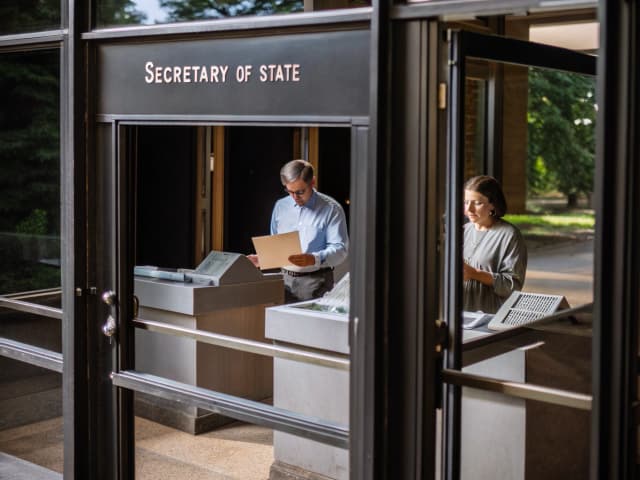
Roster of public officials: local government.
Mandates local governing bodies update the roster of local officials for publication. Requires updates be submitted within 120 days after each general election. Requires electronic submission to the Secretary of State. Provides potential reimbursement for state-mandated costs.
Roster of public officials: local government.

Mandates local governing bodies update the roster of local officials for publication. Requires updates be submitted within 120 days after each general election. Requires electronic submission to the Secretary of State. Provides potential reimbursement for state-mandated costs.
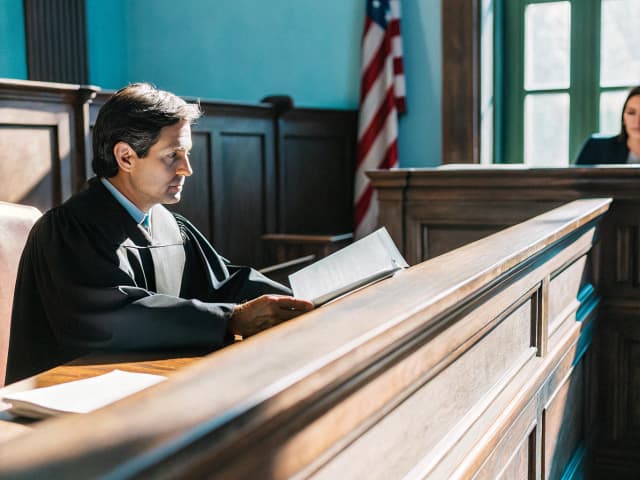
Election procedures: certified mail and superior courts.
Requires delivery by certified mail or electronic delivery for key election notices. Recasts recall procedures to use superior courts and clarifies official roles. Sets jurisdiction-based recall petition thresholds and signature rules. Standardizes ballot order drawings and runoff procedures with public access.
Election procedures: certified mail and superior courts.

Requires delivery by certified mail or electronic delivery for key election notices. Recasts recall procedures to use superior courts and clarifies official roles. Sets jurisdiction-based recall petition thresholds and signature rules. Standardizes ballot order drawings and runoff procedures with public access.

Elections: signature verification and results.
Establishes presumption that signatures are valid and non-exact matches may count. Permits nongovernmental assistance and a single combined verification form. Expands observer rights to monitor verification and unsigned envelopes. Boosts public posting to twice weekly on stand-alone pages until certification.
Elections: signature verification and results.

Establishes presumption that signatures are valid and non-exact matches may count. Permits nongovernmental assistance and a single combined verification form. Expands observer rights to monitor verification and unsigned envelopes. Boosts public posting to twice weekly on stand-alone pages until certification.